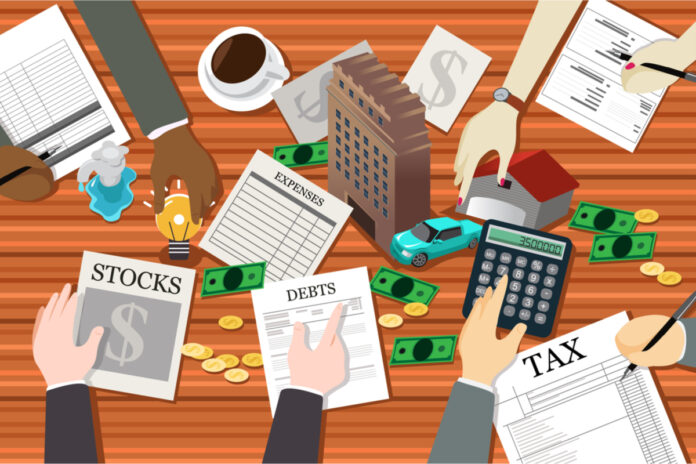In the post-pandemic economy, under the Biden Administration, many Americans are wondering, “where’s the money going to come from?” Especially with large regions under COVID-19 restrictions for the better part of a year, there’s a tangible level of fiscal uncertainty in the air, even with the latest $1.9 trillion stimulus package proposed by the new president.
U.S. businesses numbering in the hundreds of thousands have been shuttered since March and may not survive coronavirus. With so many consumers “safe at home,” few industries remain unscathed by the overall negative effects of the global pandemic.
However, cannabis isn’t one of them.
In many U.S. states, medical and retail cannabis sales were deemed “essential services” early in the pandemic. Patients with debilitating, chronic illnesses needed access to medicinal cannabis more than ever, with many unable to leave their homes after lockdown protocols went into effect.
Recreational cannabis sales also saw a spike, as work-from-home anxiety, family demands, and plain boredom set in for some consumers. Retailers adjusted to public health protocols almost overnight, with many implementing curbside pick-up and home delivery services.
“Cannabis sales have definitely increased since [COVID-19] happened. There’s a lot of off time for some folks. It’s a fun, recreational thing to do. There’s a lot of diverse people coming in, from [age] 21 all the way up to 85,” a worker at Kushman’s cannabis store located in Mukilteo, Washington, told local news outlet Heraldnet.com.
Lawmakers also recognized the chilling burden that closures would place on the new industry, even when they couldn’t possibly recognize that strict pandemic restrictions would still be in effect ten months later.
With cannabis sales revenue seemingly pandemic-proof, Senior Policy Analyst Ulrik Boesen at tax policy nonprofit TaxFoundation.org warned that lawmakers should be cautious in attempts to boost states’ revenue with legislated increases in excise or sales tax, without smart tax strategies in place. Prune too much green off the growing industry and its customer base and you risk killing the bush that grew the Golden Bud, so to speak.
“A crucial element of legalizing recreational marijuana is tax design. Most states that currently allow and tax sales have opted for a price-based (ad valorem) excise tax. Taxing based on price means there is a taxable event with a transaction, allowing for simple valuation,” Boesen explained. “While that might be the simpler way to go, it does not necessarily offer an equitable solution.
“Most states also levy the general sales tax on recreational marijuana sales, which should be encouraged as a well-designed sales tax is levied on all final consumer purchases while exempting business inputs,” he added.
Boesen also warned that excise tax rates based on price would be subject to any market volatility as the industry matures, and especially in the event of federal legalization, which seems likely under the new administration.
Vice President Kamala Harris sponsored the Marijuana Opportunity Reinvestment and Expungement Act of 2019, aka the MORE Act, which was approved by Congress in lame duck session, early in December. If approved by the newly Democrat-dominated Senate, the legislation would remove cannabis from its Schedule I designation under the Controlled Substances Act and effectively legalize cannabis on the federal level.
In that event, Boesen pointed out, the price of raw cannabis would be likely to drop as cultivators, retailers, and brands scaled up to supply larger national markets. A drop in price obviously would have a negative effect on revenue calculated on price. Excise tax rates based on THC potency or weight might provide a more stable revenue stream, “and should be neutral and aimed at the negative externality connected to marijuana consumption, which is best expressed by the level of THC… or weight,” though excise tax, he said, was not the best method for states to tap cannabis revenue.
Retail sales tax on cannabis products should provide a more reliable model for states to increase revenues, which would be paid by the retail consumer at the point of transaction, Boesen said. He suggested that lawmakers also consider how increased taxes would affect consumer prices, in order to avoid encouraging customers to purchase inexpensive, un-taxed products from illicit vendors.
Just how much tax revenue is collected from recreational cannabis sales in legal states? Overall, taxes collected in the U.S. totaled more than $1.9 billion for 2019, which included:
- Alaska – $28.4 million
- California – $629.2 million
- Colorado – $346.2 million
- Massachusetts – $89 million
- Michigan – $1.2 million
- Nevada – $164.8 million
- Oregon – $133.9 million
- Washington – $512.5 million
In the 2020 election, four more states voted to legalize cannabis, including Arizona, Montana, New Jersey, and South Dakota. Lawmakers in Connecticut, Delaware, Maryland, Minnesota, New Mexico, New York, Pennsylvania, Rhode Island, Texas, Virginia, and Wisconsin are looking at supporting legal cannabis, citing increased revenues and job creation; credible arguments for including the U.S. cannabis industry in plans for the Democrats’ Green New Deal.
Marijuana law reform nonprofit NORML’s Political Director Justin Strekal contrasted the former Trump-controlled GOP administration to Democratic officials under President Biden for the organization’s blog, and said, “Democratic leaders in the Upper Chamber—including Senators Schumer, Wyden, Booker, Merkley, Smith, Sanders, and others—have already pledged publicly to debate and advance legislation to end federal marijuana prohibition via descheduling.
“Senator Schumer’s ascension to Majority Leader will mark the first time in U.S. history that the upper chamber is led by a Senator who is openly calling for cannabis legalization,” Strekal added.








